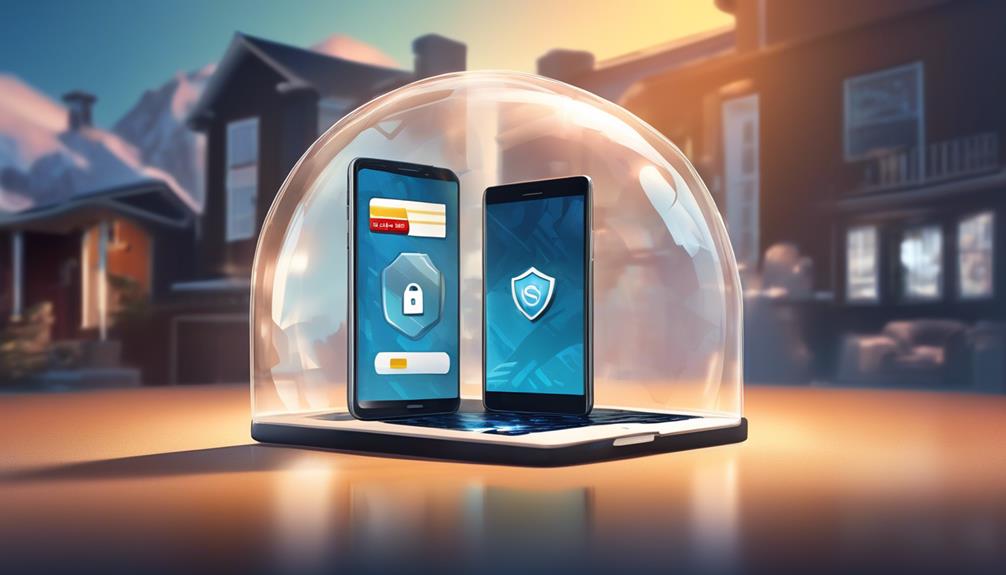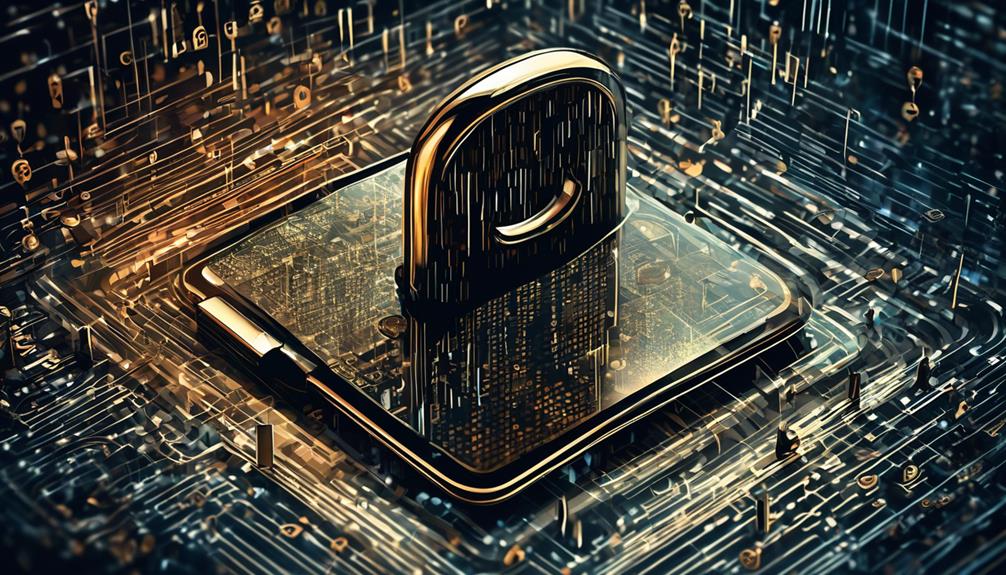Scam callers weave schemes like a spider's web to trap victims. In our digital age, phones are part of us. The ring from an unknown caller can lead to danger. It's vital to be discerning and guarded in these interactions. They may seem legitimate, tempting us to share sensitive information. This guide is a beacon, showing the safe path from these charlatans. What steps should one take when an unknown number calls? How can we spot a fraudulent facade versus a real connection? The answers are found by recognizing initial warning signs.
Recognize the Warning Signs

To effectively tackle scam calls, it's essential to note their red flags. These calls often exhibit suspicious patterns, signaling potential danger. Typically, the caller may claim to represent a trusted entity. However, they aggressively request personal data or immediate payment. They apply pressure, urging swift action to resolve a fabricated issue. Notably, this urgency is a strategic scammer tactic to undermine your judgment.
Scammers excel at seeming legitimate, but their stories usually contain inconsistencies. They might promise improbable rewards or make baseless legal threats. A common scam indicator is the request for payment via untraceable methods, like gift cards or wire transfers.
Furthermore, scam calls tend to come from unknown or spoofed numbers. Should the caller deny providing a call-back number, or dodge when asked for specifics, be wary. By staying alert and well-informed, you can safeguard not just yourself but also your community, creating a collective barrier against these widespread hazards.
Verify Caller Identity
Upon receiving a suspicious call, immediately question the caller's legitimacy. This is crucial to prevent potential scams. Caller authentication must be prioritized. If the caller purports to be from a company, you have the right to request identity confirmation. Without hesitation, ask for details like an employee ID or direct office number.
Subsequently, for added verification, consider ending the call. Then, contact the company via an official number from their verified website or your documents. By doing this, you engage with the actual entity, not a scammer. As a security-conscious community member, you'll recognize the significance of these actions.
Protect Personal Information

While verifying the caller's identity is a critical step, equally important is ensuring the protection of your personal information during any phone interaction. Scammers are often after sensitive data that can be exploited for financial gain or identity theft. To safeguard your information, consider these fundamental practices:
- Utilize data encryption for digital communications to prevent unauthorized access to your personal details.
- Create strong passwords for all online accounts and regularly update them to bolster security against cyber threats.
- Never share personal information such as social security numbers, bank account details, or passwords over the phone unless you have initiated the call and trust the recipient.
Data encryption acts as a robust barrier, encoding your information so that only those with the correct key can decipher it. This is crucial when you're sharing sensitive data over potentially insecure channels. Strong passwords, combining letters, numbers, and special characters, are your first line of defense in protecting your online presence. They should be unique and not easily guessable.
We're all part of a community that values security and trust. By taking these proactive steps, you reinforce not just your own safety, but also contribute to the collective well-being of the community, ensuring that everyone can feel a little more secure in their daily interactions.
Report the Scam Call
If you suspect a scam call, immediately report it to the authorities. Doing so helps prevent further fraudulent activities. By taking action, you protect yourself and aid the community. Caller legislation requires logging and reporting certain call details. This collaborative effort is crucial in updating scam statistics. It also refines strategies to protect individuals.
When reporting a scam call, be precise with details. Note the call's time, the originating number, and any caller information. These specifics are vital in tracing the scammer. Consequently, they significantly assist law enforcement in their investigations.
Block Future Calls

After reporting a suspected scam call, it's essential to block the number to prevent further nuisance and potential harm. Taking this proactive step not only provides peace of mind but also strengthens one's defenses against the relentless wave of unsolicited calls that plague so many.
Blocking numbers can usually be done directly through one's phone. Here are some straightforward measures to ensure you're not bothered by the same scammer twice:
- Use Built-in Block Features: Most modern smartphones include an option to block numbers. Navigate to the recent calls list, select the scam number, and choose 'block' or 'blacklist'.
- Activate Call Screening Services: Many phone carriers offer call screening services that automatically detect and block high-risk calls before they reach you.
- Register for Do Not Call Lists: While this won't stop scammers, registering with the national Do Not Call list can reduce legitimate telemarketing calls, making it easier to spot potential scams.
It's crucial for individuals to remember they're not helpless when facing these intrusive calls. By taking these actions, they join a community of vigilant phone users who prioritize their privacy and security. Everyone deserves to feel safe and connected, free from the worry of scammer disruptions.
Frequently Asked Questions
How Should I Handle a Scam Call if the Caller Has Some of My Personal Information Already?
Consequently, she ensures the caller's legitimacy. She safeguards her data by not confirming any details. Instead, she promptly disconnects the call. Then, she proactively reaches out to the company to alert them about the possible scam.
What Steps Can I Take to Help Elderly Family Members Who May Not Be as Aware of Scam Calls?
She educates her elderly relatives daily, integrating Elderly Education seamlessly. Moreover, by using clear Communication Strategies, she prevents them from falling victim to scams. Consequently, this nurtures a feeling of safety and inclusion.
How Can I Differentiate Between a Scam Call and a Legitimate Call From a Company Asking for Feedback or Conducting a Survey?
She asks detailed questions, using transition words such as 'therefore' and 'meanwhile,' to verify the call's purpose. This ensures alignment with the company's usual communication methods before she discloses any personal data.
Are There Any Legal Repercussions for the Scammers if They Are Caught, and Can I Take Any Action to Contribute to That Process?
If scammers are apprehended, they encounter legal repercussions; notably, 1 in 10 will be prosecuted. Consequently, by submitting reports to authorized entities, you can support this endeavor. This action not only bolsters communal defenses against deceit but also nurtures a climate of safety.
Can Scam Calls Pose a Threat to My Digital Security, Such as Hacking or Malware, Even if I Don't Give Out Personal Information?
Scam calls can compromise your digital security by using call spoofing and voice phishing. Even without divulging personal information, these tactics are dangerous. They excel at covertly obtaining data, which can result in hacking or malware being installed on your devices. Therefore, it is crucial to remain alert at all times.
Conclusion
Navigating scam calls requires vigilance and a steadfast approach. By gaining knowledge, individuals become vigilant sentinels. They protect their personal information like treasure. Crafty pirates, known as scammers, aim to steal this treasure.
Reporting these fraudulent calls strengthens the community's defenses. Consequently, fewer citizens fall prey to these telephonic tricksters. Remember, blocking a call effectively thwarts a scammer. This action keeps personal data safe and maintains peace of mind.



